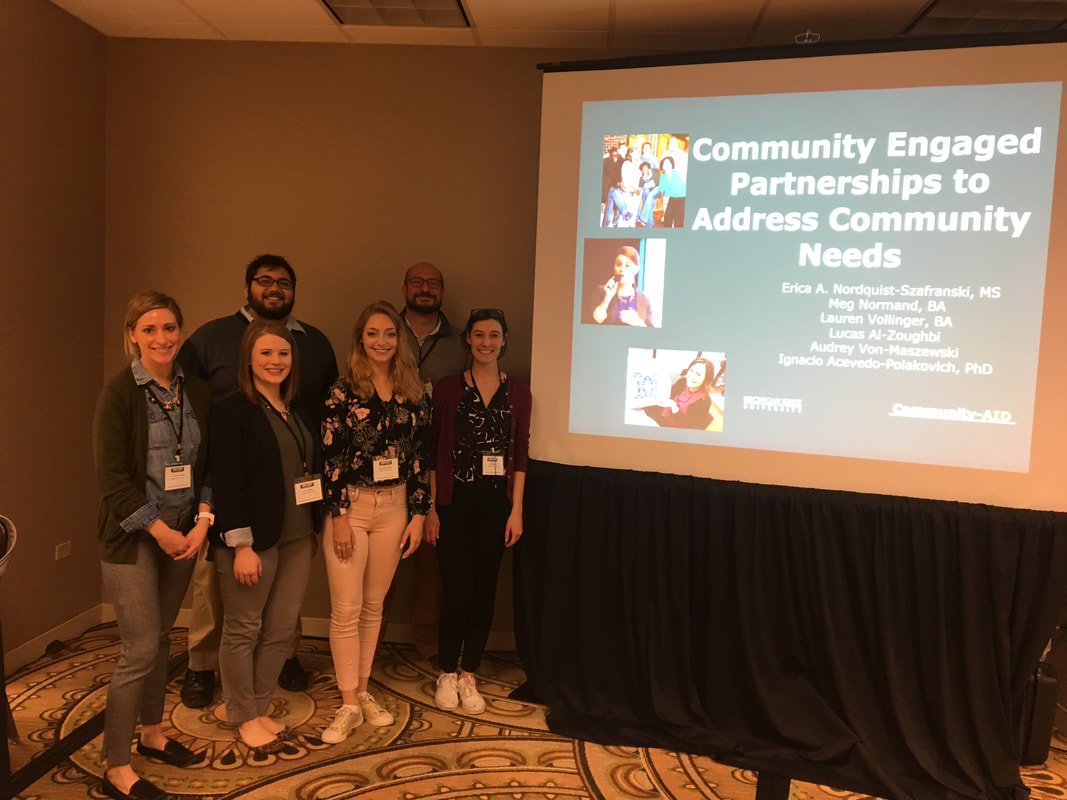Why have mentors?
1. Perhaps the foremost reason to have a network of mentors is that no one mentor is likely to be an expert on every single thing that there is to know about your professional development. Having multiple mentors raises the probability that you can access guidance from a knowledgeable person.
- For example, in my own career I’ve relied on relatively recent job applicants for practical guidance on job searching and on more experienced faculty members for guidance on avoiding common mistakes that job applicants make. Having access to both groups of mentors allows for a more complete picture of the job search process, and ultimately a more successful search. The same principle applies to most domains of professional development in both research and practice.
2. Another reason to develop multiple mentors is that your relationships with each of them will naturally wax and wane repeatedly over time. Having multiple mentors raises the possibility of accessing someone who is ideally motivated to support you exactly at the time you need it.
- The most poignant example from my own career came when a mentor that I most often rely on for advice on publishing and writing faced an unfortunate series of health and family problems. Demanding her time and resources under those conditions would have been selfish and indelicate of me. Having other mentors to rely on allowed me to receive the guidance that I needed in order to continue meeting my professional demands, and freed my time so that I could honor and support my mentor through difficult times.
3. Having multiple mentors fosters freedom and independence. I run into colleagues whose reliance on one or only a few mentors has limited their professional choices (e.g., “I wish I could apply for that job, but I don’t know anyone in that system” or “I can’t publish this, it goes directly against what X has been saying for years.”). I’ve had only a few experiences where I have felt as they do. It is unpleasant to feel that after all the work you’ve put into experiencing success in your field, your growth is inordinately affected by the whims of a person who you have little influence upon.
- Whenever I’ve discovered that my professional environments make success contingent on unfailing alliance to one particular person or set of ideas, I have immediately begun looking elsewhere (a decision most always supported by the mentors in my network).
4. This brings me to a final benefit of mentorship networks–support. Because you are human, you will make mistakes regarding your professional development. When this happens, it is wonderful to have available to you a number of mentors outside of your immediate professional context that can help you navigate back to a sound professional course.
- In the midst of my worst professional decisions, it has been my mentors who have helped me plot the course out of those decisions, and whose support has led me to believe a successful resolution is possible.
I’m sold, how do I build a mentorship network?
Before discussing specific tactics, I ask you to consider that it is difficult, if not impossible, to be mentored without being humble. Mentors are willing to provide something that you do not have (e.g., knowledge, a skill, experience, a professional contact, etc.) in exchange for the satisfaction of seeing you avoid a pitfall that they encountered or watching you develop. Demanding and entitled attitudes on the part of mentees (often soon to be “former mentees”) are unlikely to foster mentors’ willingness to continue to assist you. Humility, appreciativeness, and graciousness seem to best honor the benefits received from your mentors.
As for where to begin, I think that it is best to begin building mentors within your natural environment. Among graduate students, perhaps the most natural mentors are faculty and other students. For lack of humility, I’ve seen students ignore incredibly helpful information provided to them by their peers. For lack of appreciation, I’ve seen these peers (and faculty) stop sharing helpful information with “could have been mentees.” The medieval philosopher Dominic of Guzman is said to have written “appreciate all wisdom you encounter, irrespective of its source.” That is an incredibly productive attitude if you are looking to develop mentors. I’ve received incredible advice from people that I’ve not expected it from, often ones who I am not personally drawn to. Making sure to note the appreciation that I have for their wisdom (e.g., through written or verbal comments) has ensured more wisdom in the future.
A second natural place to seek mentors is through programs and structures developed specifically for this purpose. Many educational institutions, programs, and professional societies have formal mentoring or professional development programs. If you find one that works for you, you’ve found a rare commodity that you should not undervalue.
Professional societies provide one final place to identify potential mentors and develop mentors. The more you interact with people who share your interests, the more you are likely to find some among them who are willing to guide you. When you find these people, honor and appreciate them. I’ve met some of my most valued mentors and mentees (some of whom in turn have mentored me in specific domains) sitting in the audience of a professional presentation or over lunch at a workshop.
Some final observations
Here are some things that I’ve learned on the road to developing and maintaining my own mentorship networks.
1. I repeat, and will repeat it again and again, humility and appreciation go a long way. If a person is helpful to you, let them know it. A doctoral student recently came into my office frustrated that I had stopped giving her direction as I did before. Her frustration was surprising to me as I had scaled down my advice based on the lack of feedback from her about it. It is my job to teach all students at my institution. It is my pleasure and privilege to be able to mentor some. I don’t want to impose, so I am unlikely to mentor people who fail to provide me a sense that my mentorship is valued.
2. Initiative can work miracles. I once wondered out loud why a friend of mine got advice from one of our mentors that I –despite having more contact with this mentor- did not get. Her answer: I ask. Lesson learned, I now ask. I don’t always get an answer (or the answer I want), but –unsurprisingly- the net amount of times that I do get an answer has increased exponentially.
3. Not everyone can mentor you. There are several people that I respect and admire who I’ve hoped to develop mentorship relationships with, but these have never materialized. While the reasons for this may be varied (e.g., lack of time, lack of personal compatibility. etc.), one thing I’ve learned is not to take it personally. Sometimes the inability to form a mentorship relationship has stemmed from an identifiable reason that helps me grow, others it has not. In either case, it is good self-care to learn as much as you can from that event and then move on with your life and professional development.
- In my own life, I often refer students and colleagues who seek advice or consultation from me to someone else. It is not because I do not like or value these people. Much to the contrary, it is because I value them that I refer them to someone who can serve them better than I can at the time.
- While it is wise for everyone to take advantage of as many opportunities to develop mentoring relationships as they are afforded, not everyone will excel at the same types of opportunities. Find your strength and build from it.
Author’s note: A first version of this blog entry was written Ignacio Acevedo, PhD, about ten years ago. At that time, it was featured in the Multicultural Mentoring blog by the Society of Clinical Psychology’s Section on the Clinical Psychology of Ethnic Minorities. (APA Division 12, Section 6). In 2014, a lightly copyedited version was reposted on the American Psychological Association of Graduate Students’ gradPSYCH Blog. Ignacio has significantly copyedited the original version for this current post.
(Several Community-AID team members at a recent conference. From left to right; Erica Nordquist, Lauren Vollinger, Lucas Al-Zoughbi, Audrey Von-Maszewski, Ignacio Acevedo, and Meg Normand).


